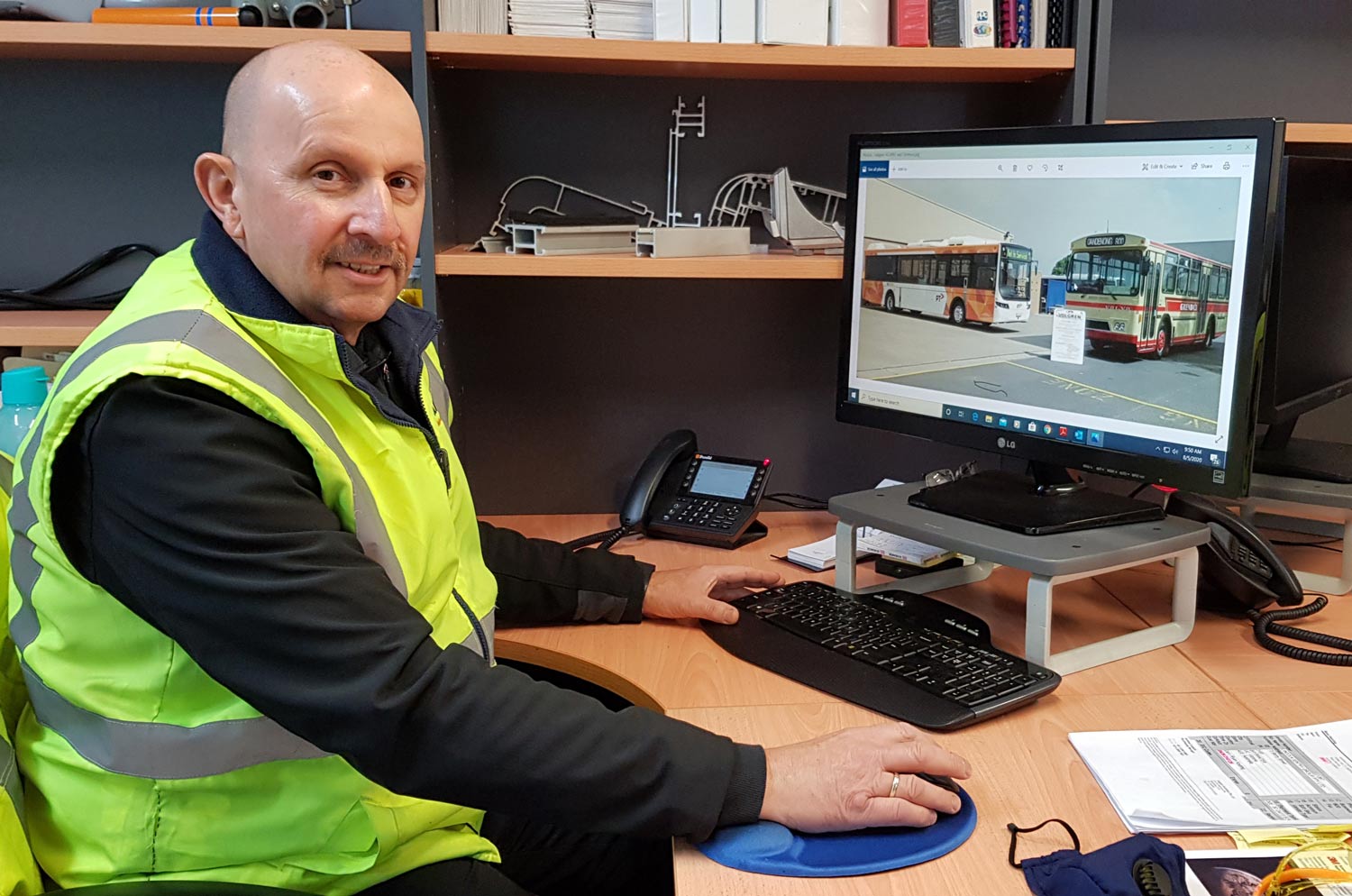Ross Herring has been at Volgren since the company was established. In fact, Ross’s career as a vehicle body maker pre-dates Volgren by three years. Apart from a brief departure in the 1980s, it’s been his professional home for his entire working life.
Ross joined Grenda’s Bus Service as an apprentice in 1974 and by the time Volgren was came into being in 1977, he was already being officially recognised for his work. He won the Outstanding Apprentice of the Year in that year, as well as an award for craftmanship.
“Volgren was managed by Fred Spiller, previously the workshop manager at Grenda. He insisted on high workmanship standards which set up a great work culture for the business, and high standards for me – and not just at work,” Ross says.
“I was their first apprentice (and was) well supported by the company. They allowed me to do a fourth year at trade school, plus stay for the night school and attend Saturday mornings at times [to complete further training].”
In 1980, Ross travelled to Switzerland to train with Volgren’s Swiss manufacturing (aluminium body structure design) partner, HESS, staying for six weeks. He visited again decades later.
Volgren moved to its current Dandenong facility in 1987 and after that relocation, Ross worked in multiple roles. He was a factory foreman, a production manager, a safety and environmental leader and a process leader. He regularly travelled interstate and even overseas, at one point visiting Indonesia to support body kit assembly work.
Today he’s part of the Manufacturing Engineering department and says his role is varied, covering process improvements, in-house training, interstate facility support, product testing, quality and safety, prototype reviews and much more.
“I work and communicate within the majority of departments: Sales, Product Engineering, Purchasing, Planning, Operations, Interstate Facilities and After Sales. [It’s important to] have a good relationship with your colleagues and show respect for what their own responsibilities are. We all are working to achieve the same result for Volgren – a quality outcome.”
“I have a process improvement project that I am planning and working on, but the support for the manufacturing facilities remains one of my priorities, to address any operators’ concerns regarding a process of quality standards.”
Ross, who worked on Volgren’s very first bus in 1979 (known as VG001), says that over four decades he’s seen plenty of good times, as well as some tough ones – during the recession of the 1990s the company could only employ seven people. What’s remained the same is the company’s insistence on excellence.
To prove his point, Ross talks about recently seeing Volgren buses built in 1995 and 1999 not just in working order, but being praised by the people using them.
“Just recently there was a school bus that’s 25 years old and the feedback from the driver was positive.”
“It’s great to see some early-built vehicles still in service. I still have a sense of pride in what Volgren has achieved.”
As for the future, Ross says even though he’s “getting on a bit”, recent changes have given him new career momentum.
“What I’ve really enjoyed about Marcopolo coming in is that they’re looking at improving things – even with Optimus – and taking on new ideas.
“This is really refreshing for me. There have been some changes here for the better and I’m looking to the next few years.”

